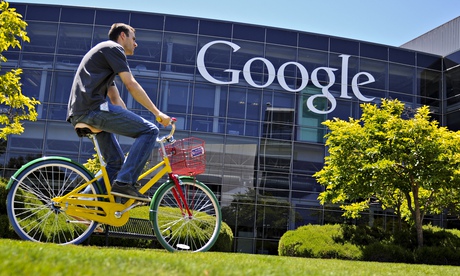
Google has hit back at the claim by Rupert Murdoch’s News Corp that it is a platform for piracy, arguing that it does more than “almost any other company” to fight illegal online activity.
The online search company responded to News Corp’s open letter to the European competition commissioner Joaquín Almunia last week in a post titled “Dear Rupert” on its Google Europe blog on Thursday.
News Corp chief executive Robert Thomson branded the internet giant a “platform for piracy and the spread of malicious networks”.
“Google has done more than almost any other company to help tackle online piracy,” Rachel Whetstone, the former adviser to Conservative leader Michael Howard who is now Google’s senior vice president global communications, responded.
Whetstone said that last year Google removed 222m web pages that broke copyright rules, with an average take down time of six hours.
She added that websites that regularly violate copyright regulations are “downgraded” in its search rankings.
“Google is also an industry leader in combating child sexual abuse,” she said. “And we are committed to protecting our users’ security. It’s why we remove malware from our search results and other products.”
Whetstone’s blog post poked fun at Thomson’s assertion that by undermining the “basic business model of professional content creators” such as News Corp, Google was helping create a “less informed, more vexatious level of dialogue”, with the result that “intemperate trends” across Europe would proliferate.
It included a link to News Corp UK title the Sun’s notorious “Up Yours Delors” front page from 1990, aimed at the then European Commission president, with the accompanying comment: “People probably have enough evidence to judge that one for themselves.”
This follows Google’s equally pithy initial response to News Corp’s latest broadside last week, when it issued the following statement referencing another infamous Sun splash headline: “Phew what a scorcher! Murdoch accuses Google of eating his hamster.”
Thomson also argued that Google’s “egregious aggregation” of content meant that it was not a “canvas for freedom of expression”.
“We agree about free expression and the importance of high quality content,” said Whetstone. “Access to information in any given country, particularly news content, used to be controlled by a relatively small number of media organisations. Today, people have far greater choice. That has had a profound impact on newspapers, who face much stiffer competition for people’s attention and for advertising euros.”
She argued that Google has “worked hard” to help publishers make the digital transition, driving traffic and online revenue.
Whetstone said that there is plenty of competition in the search market, from Amazon for a range of products to Kayak and Expedia for flights, and TripAdvisor and Yelp for local information.
“Because the competition is just one click away online, barriers to switching are very, very low,” she said. “Google is, of course, very popular in Europe, but we are not the gatekeeper to the web, as some claim.”
Thomson accused Google of fiddling with its search algorithm to maximise its own revenues and “punish” small companies.
Whetstone admitted that Google makes more than 500 changes a year to its algorithms, but only to improve user experience.
“It’s well documented that the highest-profile change to our search ranking, called ‘Panda’, actually reduced our advertising revenue,” she said.
Earlier this month the European Commission reopened its four-year antitrust investigation into Google’s search and advertising business after Almunia said the commission was not close to a settlement.
In an interview with Bloomberg TV Almunia said he had received “very, very negative” responses from complainants to a proposed settlement unveiled in spring. Ministers from Germany and France, as well as other commissioners in the EC, had also criticised the proposed settlement.
• To contact the MediaGuardian news desk email media@theguardian.com or phone 020 3353 3857. For all other inquiries please call the main Guardian switchboard on 020 3353 2000. If you are writing a comment for publication, please mark clearly “for publication”.
• To get the latest media news to your desktop or mobile, follow MediaGuardian on Twitter and Facebook.

